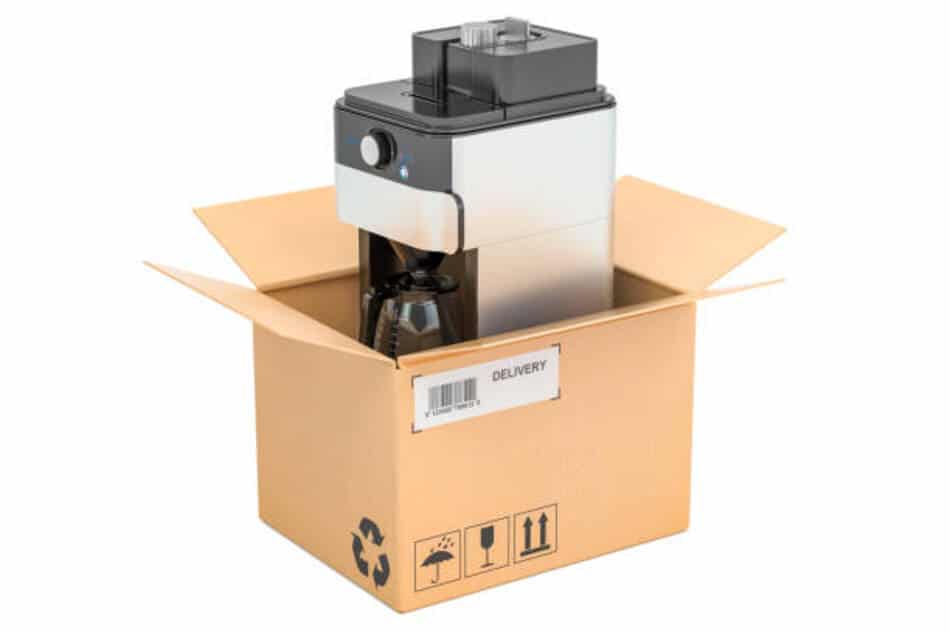When it’s time to get rid of your old coffee maker, you might not know how to properly dispose of it. Coffee makers contain a lot of plastic and metal, which can be harmful to the environment if not disposed of correctly. In this article, I will teach you how to properly dispose of your coffee maker so that it doesn’t end up in a landfill.
You can recycle it, donate it, or simply throw it away. If you’re looking to get rid of your coffee maker in the most eco-friendly way possible, recycling is always the best option. Most manufacturers offer recycling programs for their products, so if your coffee maker is from a major brand, check their website to see if they have a recycling program.
What To Do Before Recycling
- First, you’ll want to make sure that all of the coffee grounds are emptied from the machine. You can do this by running a few cycles of water through the machine.
- Once the coffee grounds are gone, you’ll need to remove any filters that are in the machine. These can usually be found in a compartment near the water reservoir. After you’ve removed the filters, you can dispose of them in your regular trash bin.
- Next, you’ll need to clean out the inside of the coffee maker. This can be done by using a mild soap and water solution.
- Be sure to rinse the machine well after cleaning it so that no soap residue is left behind. Once your coffee maker is clean, you can unplug it from the power source and disassemble it.
- Now that your coffee maker is disassembled, you can start removing any parts that are made of plastic. These parts can be recycled at most local recycling centers.
- The metal components of the coffee maker can also be recycled, but you’ll need to take them to a specialized facility.
- Once all of the recyclable parts have been removed, you can dispose of the rest of the coffee maker in your regular trash bin.
Remember, when it comes to disposing of electronic waste, it’s important to do your research so that you don’t end up harming the environment.
Related: How To Clean A Coffee Maker Without Vinegar
Donate It
Donating your coffee maker is another great option, especially if it’s still in good working condition. Many organizations accept small household donations, so doing a quick search online should help you find a place to donate your coffee maker.

If you don’t have any luck finding an organization that accepts small appliance donations, try looking for a local thrift store. Most thrift stores accept small household items, and you can usually get a tax deduction for your donation.
You Can Recycle
Most coffee makers are made of plastic, metal, and glass which can all be recycled. However, many coffee makers have a lot of small parts that can make recycling difficult. First, check to see if your coffee maker can be recycled. Most hardware stores will accept small appliances for recycling, so this is a great option if it’s available to you. Call ahead to find out the specific requirements for recycling a coffee maker in your area.
You find a local e-waste recycling center. Many cities have these centers where you can drop off old electronics to be recycled properly. To find a center near you, do an online search or check with your city’s waste management department.
It’s important to recycle or dispose of coffee makers properly because they have harmful toxins like cadmium, lead, and brominated flame retardants. Improperly disposing of them can contaminate the environment and put people’s health at risk.
Most Manufacturers Offer A Recycling Program For Their Products
If your coffee maker is from a major brand, check their website to see if they have a recycling program. Some brands will even send you a shipping label so you can recycle your coffee maker for free.
If your coffee maker is not from a major brand, or if you can’t find any information about recycling programs, don’t worry! There are still plenty of options for recycling your coffee maker.
You can always check with your local municipality to see if they have any special programs for recycling small appliances or, you could take them to a local electronics store and see if they’ll recycle them for you. Whatever you do, make sure you’re disposing of your coffee maker in a way that’s best for the environment.
Whatever you do, make sure you’re disposing of your coffee maker in a way that’s best for the environment.
Trash It
If neither recycling nor donating is an option for you, then you can simply throw your coffee maker away. However, if you do choose to throw it away, make sure you’re doing so properly. Small appliances like coffee makers often contain harmful chemicals, so it’s important to dispose of them correctly. Check with your local municipality to see how they recommend disposing of small appliances. In many cases, the best way to dispose of a small appliance is to take it to a special waste facility that accepts hazardous materials.
Hire A Junk Removal Company To Come And Take It Away
You might be able to find one that will recycle it for you if you look around. If not, most coffee makers can be recycled at your local recycling center. Be sure to check with them first, though, as some centers only accept certain types of plastics.
Check if your waste company takes coffee machines. Some will only take them if they are small enough to fit in your regular recycling bin.
No matter how you choose to dispose of your coffee maker, the most important thing is that you do it in a way that’s best for the environment. Recycling is always the best option, but if that’s not possible, there are still plenty of other options to choose from. Just make sure you’re taking the time to dispose of your coffee maker properly!
Related: How To Clean Coffee Maker With Apple Cider Vinegar
Dangers Of Not Disposing Of Your Coffee Maker Properly
Coffee makers are one of the most commonly used appliances in households around the world. While they may seem like small appliances, if not disposed of properly, coffee makers can pose serious risks to your health and the environment. Here are some dangers of not disposing of your coffee maker properly:
Coffee Makers Can Release Harmful Chemicals Into The Air
When coffee makers heat up, they can release harmful chemicals into the air including benzene and carbon monoxide. These chemicals have been linked to cancer and other serious health problems.
Coffee Grounds Can Clog Drains And Cause Sewage Backups
Coffee grounds can easily clog drains and pipes. If enough coffee grounds build up, they can cause sewage backups and flooding.

Coffee Makers Can Be Difficult To Recycle
Most coffee makers are made of plastic, which can be difficult to recycle. In addition, coffee makers often contain harmful chemicals like cadmium, lead, and brominated flame retardants. Improperly disposing of them can contaminate the environment and put people’s health at risk.
Coffee Makers Can End Up In Landfills
If you throw your coffee maker away, it will likely end up in a landfill where it will take up valuable space and release harmful chemicals into the ground.
As you can see, there are many dangers of not disposing of your coffee maker properly. That’s why it’s so important to make sure you’re recycling or donating your coffee maker instead of simply throwing it away. Not only will you be helping the environment, but you’ll also be protecting your health and the health of those around you. So next time you need to dispose of a coffee maker, make sure you’re doing it in a way that’s best for everyone involved!
Final Thoughts
If you’re unsure how to dispose of your coffee maker, the best bet is to check with your local municipality. They will likely have specific guidelines for how to properly recycle or dispose of small appliances. Otherwise, many coffee makers can be recycled at e-waste recycling centers. And finally, if your coffee maker is still in working condition, you may be able to donate it to a local thrift store or charity. With a little research, you should be able to find the best option for disposing of your old coffee maker. Thanks for reading!

